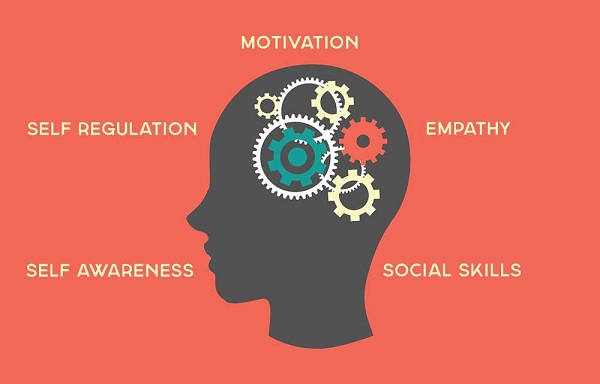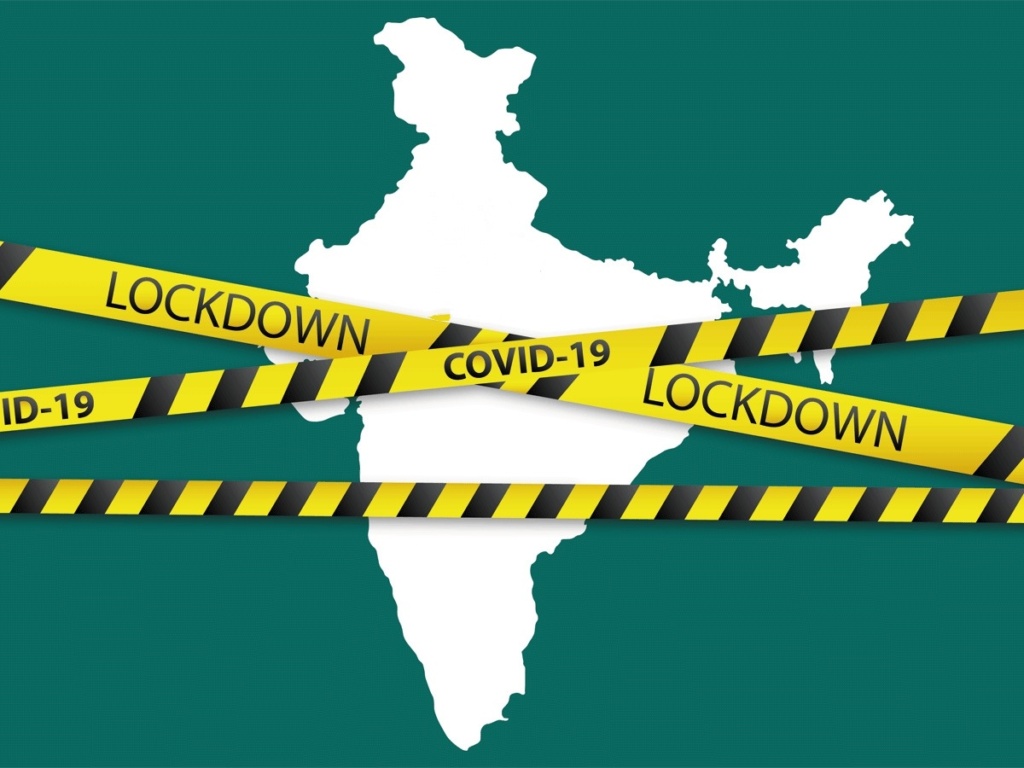It won’t be long that lockdown 4.0 will be announced by our honourable Prime Minister Mr. Narendra Modi. With the global pandemic having no remedy yet it looks like the pandemic is on the winning side affecting millions and killing thousands. Everyone is in a dilemma as to how to move forward. The government is torn between saving the citizens and saving the economy. The Indian government seems to manage both.
Before talking about the impact of coronavirus and its aftermath, let me first tell you what this virus is, how it started, precaution needed and other details.
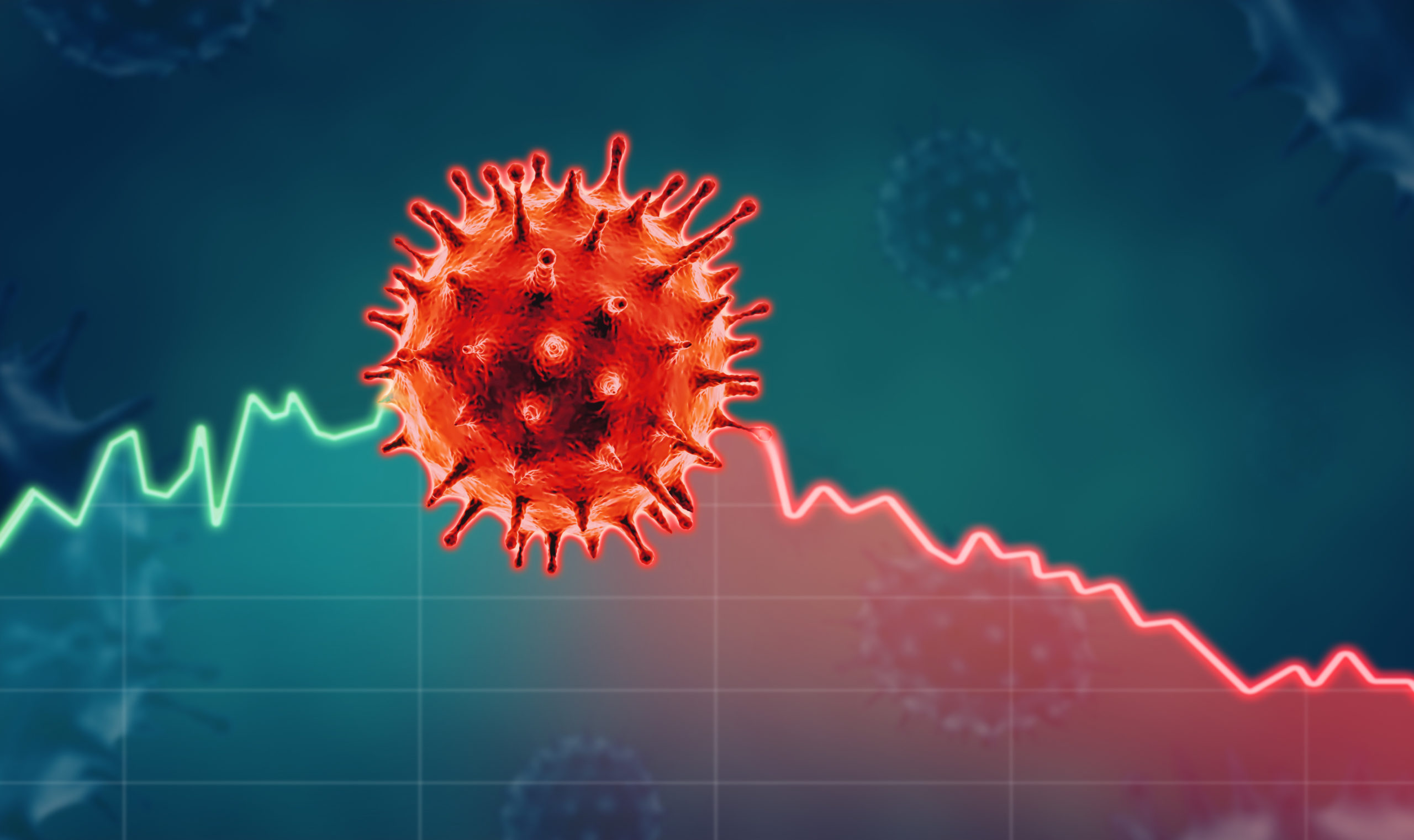
The virus as named by the scientists is called SARS-Cov-2 short form for Severe Acute Respiratory Syndrome Coronavirus 2 and the disease cause by is called COVID-19 short from for Coronavirus disease of 2019. The virus belongs from the coronavirus family and has severe symptoms which could cause death if infected with. Some of the common symptoms of the disease are fever, itchy throat, dry cough and breathing difficulty. While there are other symptoms that have been seen on infected people such as:-
- Aches and pains
- Tiredness
- Sore Throat
- Diarrhoea
- Conjunctivitis
- Headache
- Loss of Taste or Smell
- A Skin Rash or Discolouration of Toes and Fingers
- Shortness of Breath
- Chest Pain or Pressure
- Loss of Speech or Movement
Kids and older people are more prone to catching the disease. People especially those having medical problems like high blood pressure, heart and lung problems, diabetes or cancer, such people are at higher risk of developing serious illness. However, anyone can catch the virus and become seriously ill.
Now the question comes how do we get infected with the virus?
People can easily catch the disease from other infected people. The disease spreads from person to person through small droplets from nose or mouth when an infected person sneezes, choughs or speaks. People can catch the coronavirus disease if they inhale these droplets. This is why it is important to stay away from people at least 1 meter. These droplets can land on objects and surfaces such as tables, doorknobs and handrails. People can get infected by the virus if they touch such surfaces and then touch their eyes, nose or mouth.
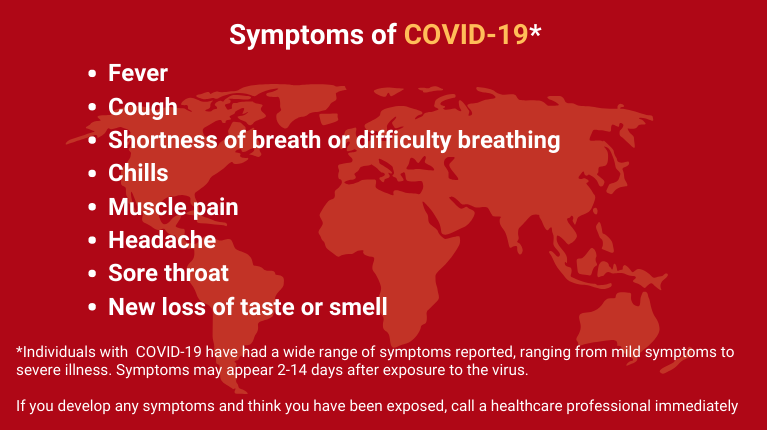
Precautions to be taken: – Some western and traditional or home remedies can provide comfort or alleviate symptoms of mild COVID-19, but there are no medicines yet to prevent or cure the disease. The World Health Organization does not recommend self-medication with any medicines or antibiotics as prevention or cure for the disease. Scientists are doing clinical trials of both western and traditional medicines to find the cure. For now the most effective ways to protect yourself as well as others from COVID-19 are: –
- Clean your hands frequently and thoroughly with hand wash or alcohol based sanitizer.
- Avoid touching your eyes, mouth and nose.
- If infected wear a mask and immediately report to a doctor.
- While coughing or sneezing cover your mouth with the bend of elbow or tissue. Discard the tissue immediately after use and wash your hands.
- Maintain a distance of at least 1 metre from others.
Follow the above tips to protect yourself from coronavirus.
The incubation period of the virus is 14 days, which means it can take around 14days for person to show symptoms of the disease if exposed to the virus.
All said about the virus and the disease caused from it, let’s now discuss about the impact of coronavirus on the world and especially on our country India and how it is changing and affecting things.
Impact of Coronavirus on the World
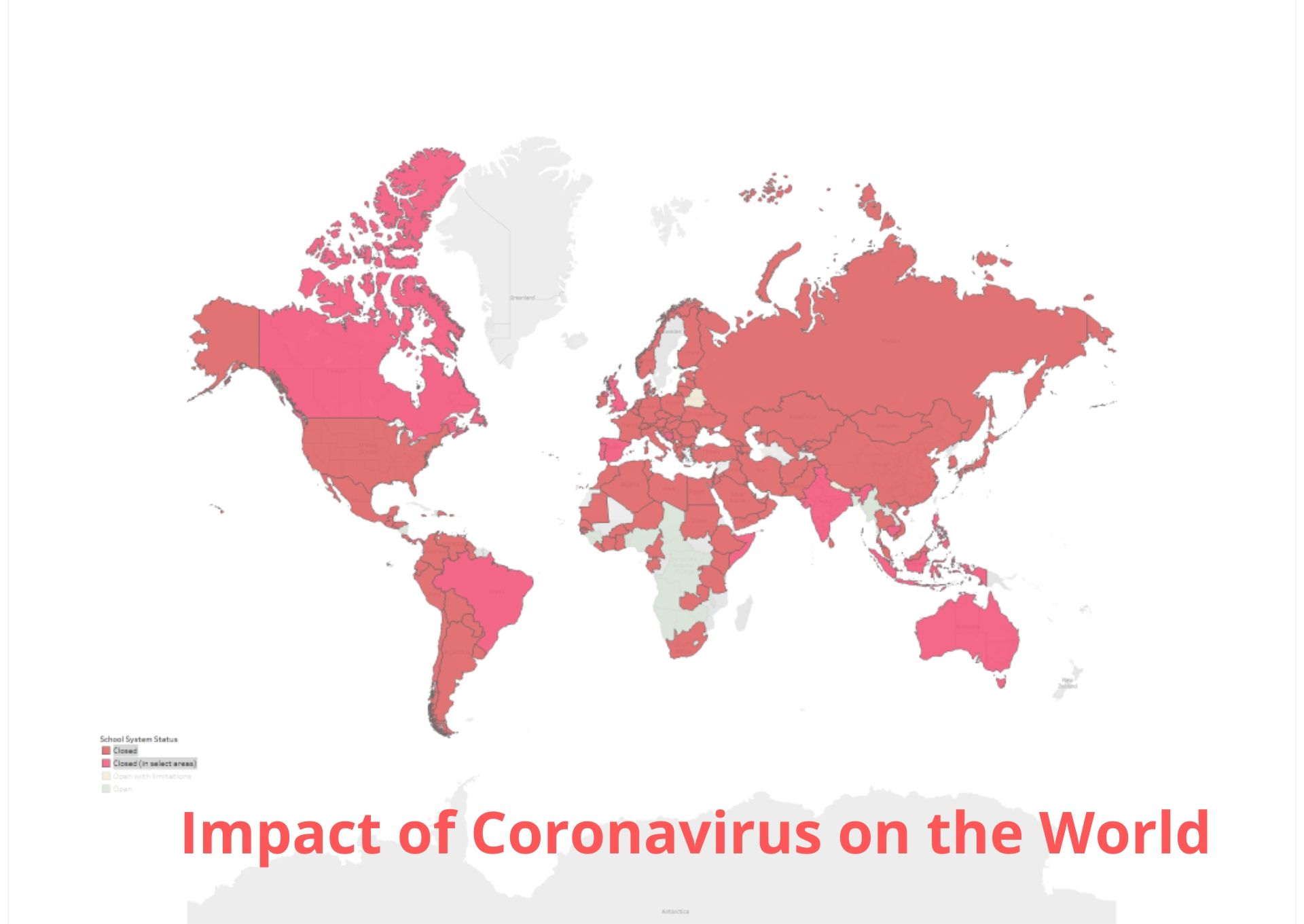
According to World Health Organization there are 43,96,392 confirmed cases and around 3,00,441 people have died across the globe due to COVID-19. To control the spread and further deaths, several counties like China, US, France, Italy, India and many more imposed complete lockdown ne after the other, shutting all educational institutions, industries, offices, markets and mall. People were advised to follow the rules strictly and avoid going out, public gatherings were to be avoided and maintain social distancing. While only necessary facilities were open like medical shops and hospitals. Food and vegetable markets were supposed to be open for a limited time with people buying things taking all the precautions and standing at a distance from others.
As estimated by the IMF, the global economy will grow at -3 per cent in 2020 an outcome far worse than the great depression and the 2009 financial crisis. The economies of countries like US, Japan, the UK, Germany, France, Italy and Spain are expected to contract this year by 5.9, 5.2, 6.5, 7, 7.2, 9.1 and 8 per cent respectively.
Developed economies have been hit harder and are expected to grow by -6 per cent in 2020. While the emerging or developing economies are expected to contract by -1 per cent.
Global industrial activities are being affected due to the fall in travelling sector. In March Oil prices further fell as the transportation sector was hit due to countries imposing lockdowns. The transportation sector accounts for 60 % of the oil demand. Not only oil the demand for natural gas also fell. The decline in oil prices has also put a downward pressure on prices of palm oil, soy oil, sugar and corn.
Several countries imposed lockdowns one after the other, closing all the industries, this led to a reduced demand for industrial metals.
Not only oil and metal industries were affected but also all other sectors. IMF shows a decrease in food prices by 2.6% in 2020, caused due to supply chain disruptions, border delays and security concerns in COVID-19 affected regions as well as export restrictions. While the prices for cereals, oranges, seafood and coffee has increased, the prices for tea, meat, wool and cotton has declined.
Impact of coronavirus on India

The first case of coronavirus India was reported on 30th January, 2020 in the state of Kerala. As of 16th May, 2020, the Ministry of Health and Family Welfare have confirmed a total 85,940 cases, 30,153 recoveries and 2,752 deaths in the country. The infection rate of the disease in India is 1.7, much lower than the worst affected countries.
The Epidemic Diseases Act, 1897 has been invoked in more than a dozen states and union territories. All educational institutions and many commercial establishments have been shut down. As the majority of the confirmed cases were linked to other countries, India suspended all tourist visas.
On March 22nd, 2020 Prime Minister ordered a 14-hour voluntary public curfew in the country. Further on March 24th, 2020 nationwide lockdown was ordered for 21 days affecting the entire 1.3 billion population. On April 14th the lockdown was extended till May 3rd and on May 1st it was further extended for two more weeks. It is assumed that soon the announcements of lockdown 4.0 will be made in the country.
Many experts believe that to deal with the coronavirus outbreak, India has tremendous capacity and being the second most populous country it will have an enormous impact on the world’s ability to deal with it. According to the observation, the infection rate is increasing day by day due to various miss management, false news and ignorance of people. The government is trying its best and taking all the measures to keep the public safe. The Indian government has responded more stringently than other countries in tackling the pandemic by acting immediately and announcing lockdown, investing in health care, fiscal measures, investment in vaccine research and active response to the situation.
Complete lockdown meant shut down all educational institutions, market places, small businesses, companies and industries. This affected the economy as well.
Economic Impact: – On March 2nd, the BSE SENSEX witnessed a flash crack after the Union health Ministry’s announcement of two new confirmed cases. A trade impact of US$348 million on India was estimated by a UN report due to the outbreak, making the country one of the 15 worst affected economies in the world. An estimation by Asian development Bank showed that the outbreak could cause a loss to Indian economy of up to US$29.9 billion. Further on March 9th, BSE SENSEX closed 1,942 points lower at 35,635, while The NSE NIFTY 50 was down by 538 points to 10,452.
The Indian stock market suffered the worst crash since June 2017 on March 12th after WHO’s declaration of the disease as a pandemic. BSE SENSEX dropped to its lowest in 23 months by 8.18% OR 2,919 POINTS, while NIFTY dropped 9% or 950 points.
The GISAT-1 mission by the Indian Space Research Organisation which was scheduled to launch in April was postponed due to lockdown.
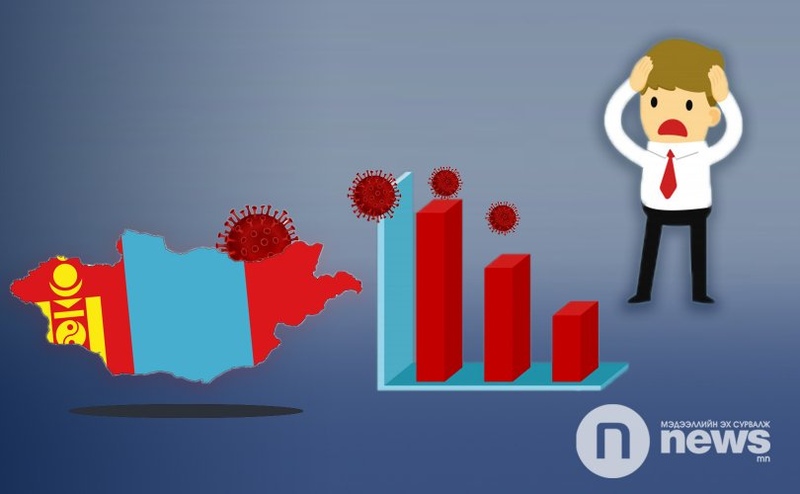
The lockdown seriously affected the poor, people will less income, daily wage earners, labourers, small business owners and middle class families. Thousands lost their jobs and many companies filed for bankruptcy. The Government is also in a dilemma between, saving the citizens and protecting the economy. But it is clear indeed that the virus can wipe out huge chunks of population and without people there is no economy, therefore the first focus must be on saving the people while also taking small steps to improve the economic condition.
In order to co-exist with the disease, the world is finding ways to move on. There has been a wave of digital transformation. With major business moving towards online operation, work from home is becoming the new normal. The aftermath of the coronavirus seems to be positive and negative at the same time. A fragile economy will be one of the biggest negative aftermaths. While positive being, a boom to virtual reality, healthier digital lifestyle, rise in telemedicine stronger health care, rise in domestic manufacturing, a new outlook toward the world, better environment conditions and many more. COVID-19 will change the world permanently.
It will take time for the economy to rise again but with the collaborative efforts of the government as well as the citizens the conditions can improve and soon become normal.
To conclude, if you want to know more about this topic then contact Oddy Uniwraps. You can also check my blog on tips to run your business during lockdown. Click here to learn more.




